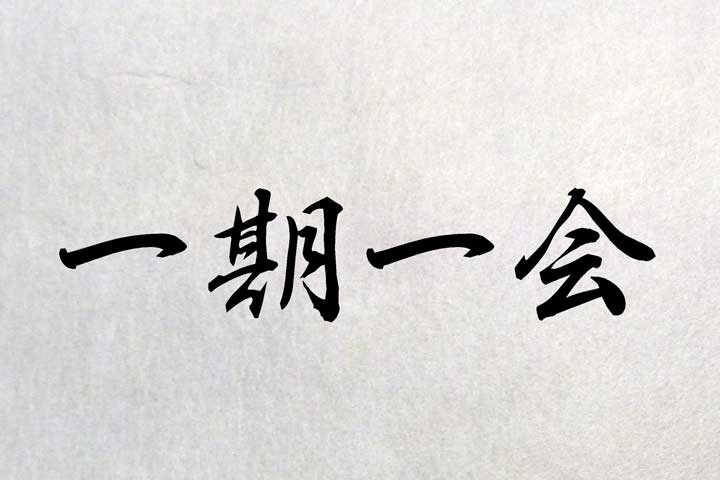Have you ever come across an odd Japanese phrase that just makes… no sense whatsoever? You think you understand what all the individual words in the phrase mean—but that meaning doesn’t seem to mean anything. This is a ridiculously common scenario that Japanese learners encounter while reading a novel, flipping through a manga, watching anime or crying over a drama.

When watching a movie, anime or drama with English subtitles, the completely untranslatable phrase is translated literally into English, leaving us scratching our heads and thinking, “what was that supposed to be about?”
What you’ve just read or heard was probably a 諺 (ことわざ), which is a Japanese idiom or proverb. Idioms are used so commonly in Japanese that you can even hear them in news or cultural programs—they aren’t only reserved for casual conversations. Many 諺 are quite ancient and haven’t changed since historical times. For this reason, many are inspired by nature and agriculture, and they often use very beautiful imagery to express an idea or philosophy.
Why Learn Japanese Idioms?
Japanese is a remarkably concise language. Japanese speakers use 諺 to express quite complex ideas in a very simple and memorable way. Through idioms, you can both familiarize yourself with the concise nature of Japanese and get on the fast track to speaking like a native. You’ll sound fluent when you throw out a few bites of time-honoured wisdom!
諺 are scattered throughout Japanese pop culture. Because pop culture is usually produced with a native Japanese audience in mind, idioms can be used in a wide range of contexts. Knowing a few common idioms can really help you to make sense of what you’re reading or watching.
Proverbs and idioms are an integral part of all languages and cultures, and they play a significant role in Japan. Parents school their children using these phrases, and they’re used in all areas of public life in Japan, so Japanese people are intimately familiar with them. Learning 諺 can help us gain a little more insight into the Japanese culture and mind set from feudal times to the modern day.
10 Japanese Idioms You Should Probably Learn
言(い)い習(なら)わし are a type of 諺 which are short phrases, usually using some kind of allegorical example from daily life, nature or agriculture to pass on some wisdom or philosophy.
1. 出(で)る杭(くい)は打(う)たれる
English translation: The nail that sticks up will be hammered down
The most commonly-known 言い習わし outside of Japan is probably 出る杭は打たれる, which means that by standing out, you invite criticism.
2. 案(あん)ずるより産(う)むが易(やさ)し
English translation: Giving birth to a baby is easier than worrying about it. This is used as a reminder that often our fear is worse than the actual threat of danger.
3. 知(し)らぬが仏(ほとけ)
English translation: Not knowing is Buddha.
The best English meaning I can assign to this is “ignorance is bliss,” with bliss being Buddha in the Japanese version.
4. 虎穴(こけつ)に入(はい)らずんば虎子(こじ)を得(え)ず
English translation: If you don’t enter the tiger’s cave, you can’t catch its cub
This has to be one of my favourites. It expresses the same sentiment as “nothing ventured, nothing gained” in English, but literally translates as a perilous adventure with tigers and cubs—which I think paints a great picture of both the risk and the reward.
5. 井(い)の中(なか)の蛙大海(かわずたいかい)を知(し)らず
English translation: A frog in a well does not know the great sea
This is a wonderful way to express the idea of a person who’s satisfied to judge everything by their own narrow experience, remaining ignorant of the wide world outside.
6. 鯛(たい)も一人(ひとり)はうまからず
English translation: Eaten alone, even sea bream loses its flavour
This is another one of my favourites. Even in modern Japanese, it’s believed that a significant part of the pleasure of eating is to sit around the table to share a meal with loved ones. This philosophy of hospitality, family time and shared meals takes on even more significance in our busy modern lives.
7. 腹八分(はらはちぶ)に医者(いしゃ)いらず
English translation: Eight-tenths full keeps the doctor away
This is just like our“an apple a day” saying, but I’d say the Japanese version is a little more helpful for long-term health. Beyond the simple mantra about eating in moderation, this 諺 expresses the cultural taboo of excess in Japan.
8. 明日(あした)のことを言(い)うと天井(てんじょう)のネズミ(ねずみ)が笑(わら)う
English translation: If you speak of tomorrow, the rats in the ceiling will laugh
This is one of the less concise idioms in Japanese, being a quite convoluted way to express a universal truth: The future is unpredictable. This is similar to the English saying, “we make our plans, and God laughs.”
9. 明日(あした)は明日(あした)の風(かぜ)が吹(ふ)く
English translation: Tomorrow’s winds will blow tomorrow
Now this is a truly beautiful proverb. It’s a hopeful phrase that means “tomorrow is a new day.”
10. 雨降(あめふ)って地固(じかた)まる
English translation: After rain falls, the ground hardens
This is yet another beautiful phrase coming straight from nature, with the same idea as in the English, “what doesn’t kill you makes you stronger”—but I personally like the Japanese version much better.










